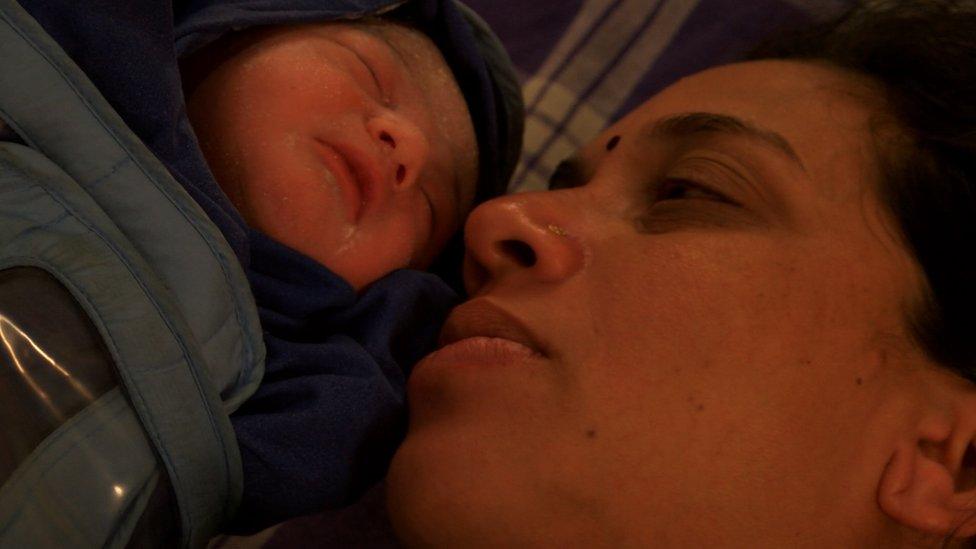India unveils plans to ban surrogacy
- Published
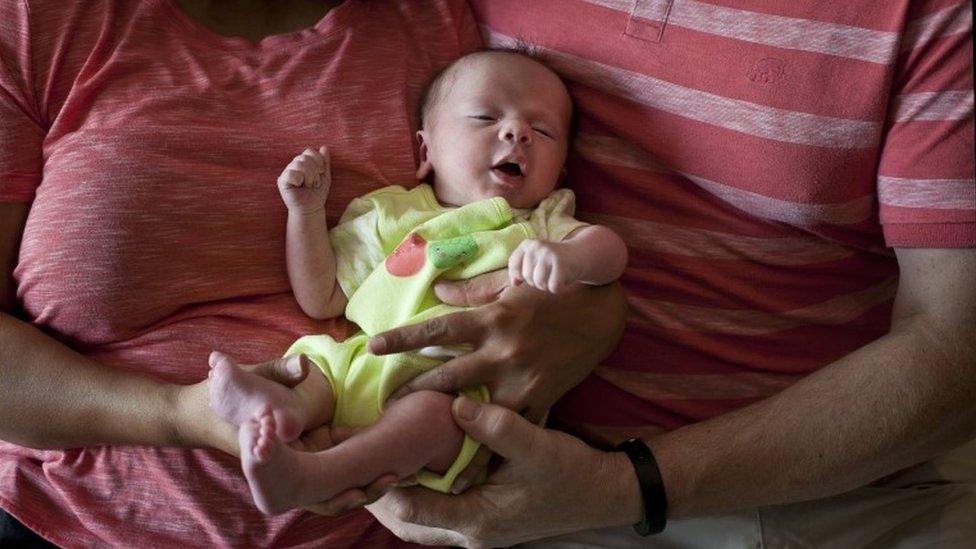
India is called the "surrogacy hub" of the world
The Indian government has unveiled a draft law which would ban commercial surrogacy.
If approved by parliament, the law will also ban people who do not hold an Indian passport, as well as Indian single parents and gay people, from having children through surrogacy.
Infertile couples would be able to seek a surrogate, which must be a relative.
Infertility groups have criticised the proposed law, saying it could lead to an illegal industry.
India surrogate mothers talk of pain of giving up baby
Despair over ban in India's surrogacy hub
Living inside the house of surrogates
Surrogate babies: Where can you have them, and is it legal?
India is called the "surrogacy hub" of the world, where infertile couples, including many from overseas, pay local women to carry their embryos through to birth.
The industry is estimated to be worth more than $2.3bn (£1.7bn) a year. But there have been growing concerns over the unregulated business.
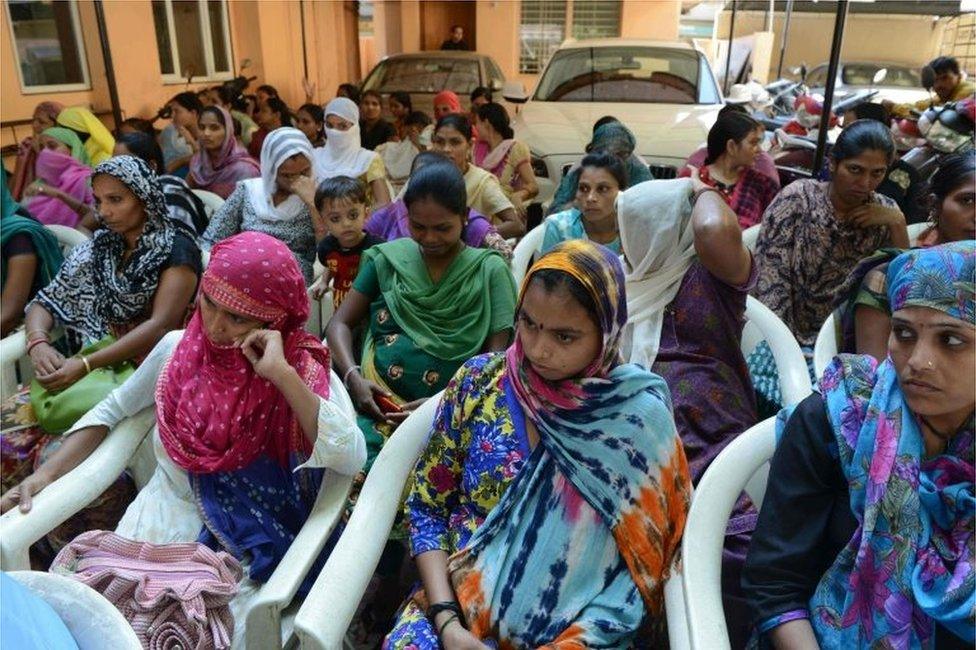
Critics of the industry says many women are driven by poverty to become surrogates
'Comprehensive bill'
Foreign Minister Sushma Swaraj told reporters that under the proposed law, only local infertile couples, married for at least five years, would be able to seek a surrogate, who must be a close relative
"This is a comprehensive bill to completely ban commercial surrogacy," she told reporters.
"Childless couples, who are medically unfit to have children, can take help from a close relative, which is called altruistic surrogacy," she said.
Many have criticised the move, saying couples desperate to have children would be left with few options.
"While we need regulations to ensure that no women are forced into surrogacy, an outright ban isn't logical," fertility expert Archana Dhawan Bajaj told AFP news agency.
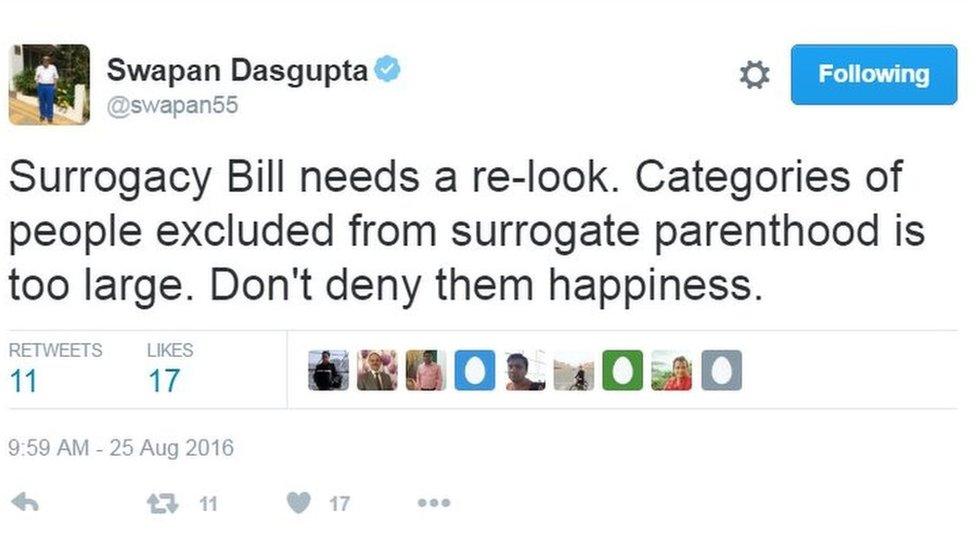
Some have criticised the draft law, saying it takes away the rights of women.
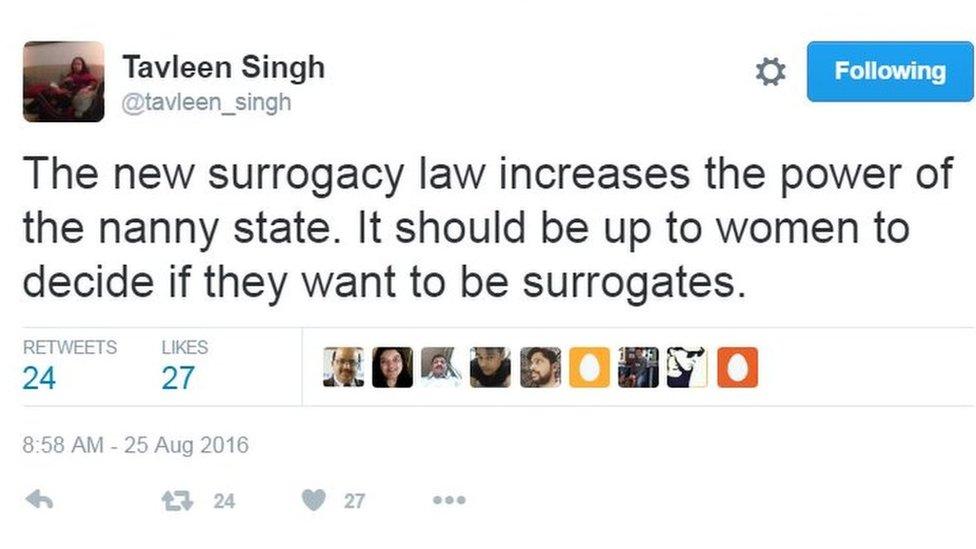
Others said the law discriminated against gay people.
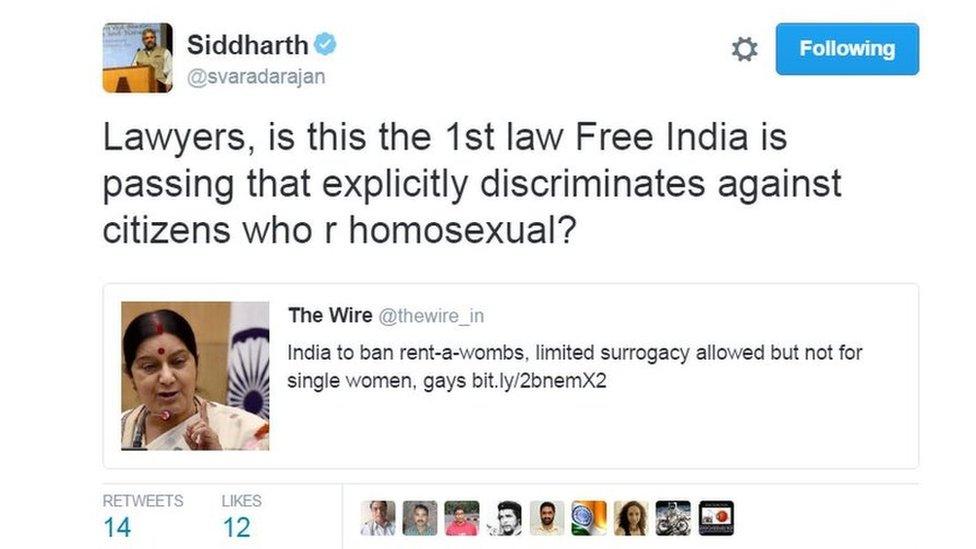
India has one-third of the world's poorest people. Critics argue that poverty is a major factor driving women to become surrogate mothers in exchange for money.
- Published15 August 2016
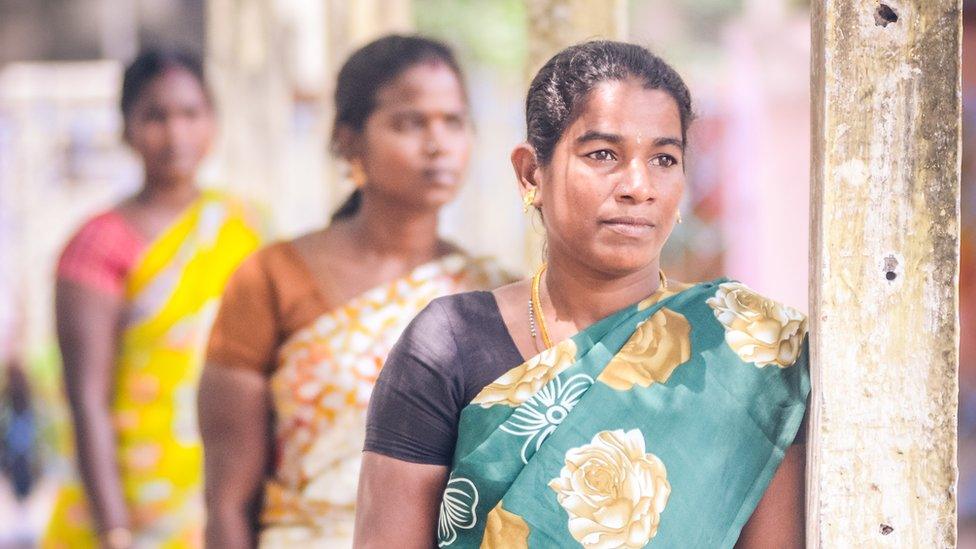
- Published1 October 2013
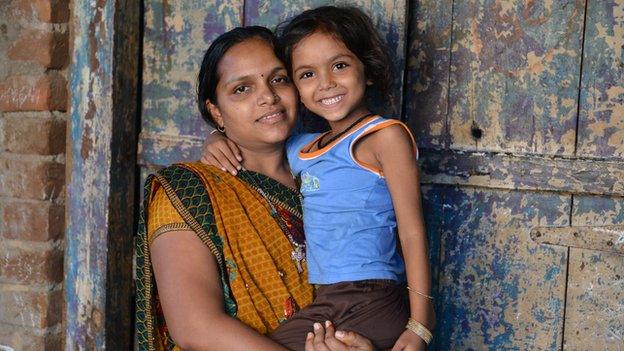
- Published6 August 2014
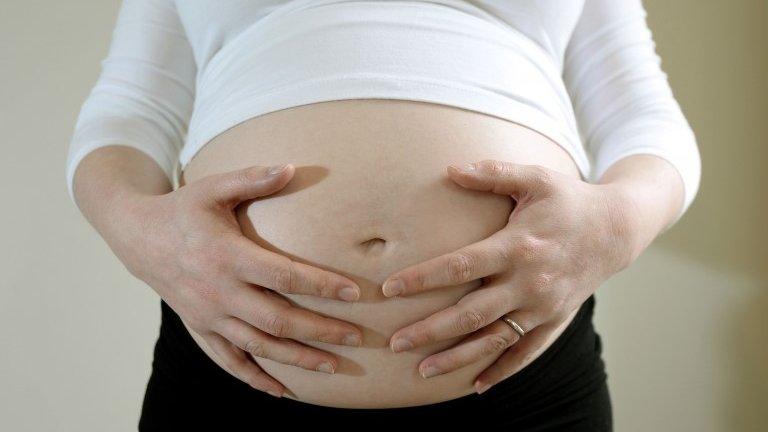
- Published22 November 2015
